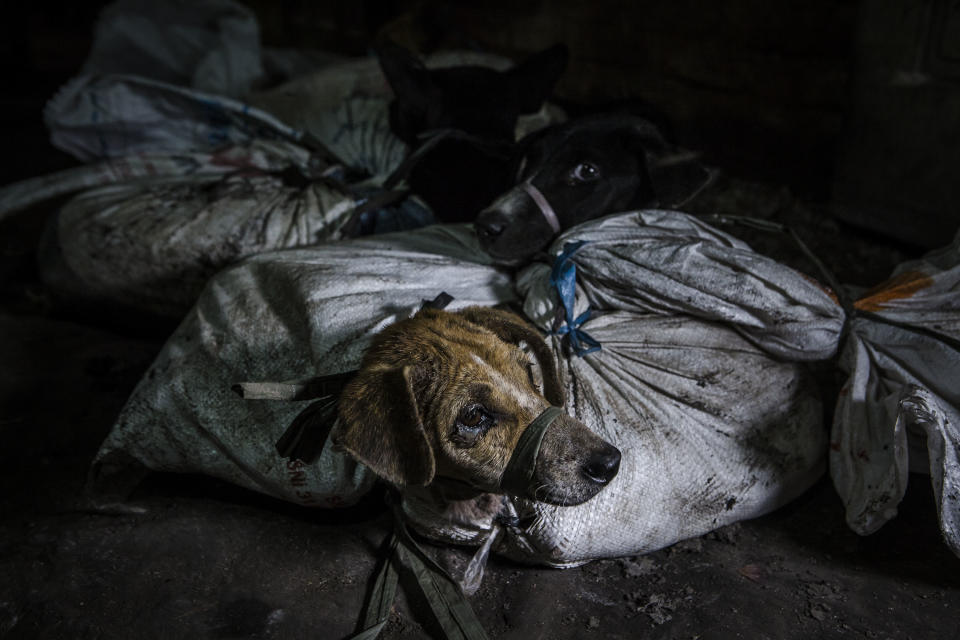Lawmakers target Asia's 'abhorrent' dog-meat industry

Citing the “abhorrent” mass slaughter of millions of dogs and cats for their meat each year, including stolen pets, a key House of Representatives committee on Wednesday adopted a resolution urging nine Asian countries to outlaw the practice.
The strongly worded but nonbinding measure, which sailed through the House Foreign Affairs Committee by voice vote, calls out China, South Korea, Vietnam, Thailand, the Philippines, Indonesia, Cambodia, Laos and India by name but urges “all nations” to do away with killing dogs and cats for their meat.
Rep. Ed Royce, R.-Calif., the committee chair, noted that the resolution “has tremendous bipartisan support,” fueled by “serious animal cruelty and public health concerns.” Public health officials have raised concerns about rabies or poison in the meat.
“In American culture, we cherish dogs and cats as more than just random animals. They can serve as therapy animals, search and rescue assistants, police dogs that aid with drug and bomb searches, they serve at airport security, they are companions, and they are cherished family pets,” Rep. Dina Titus, D.-Nev., said at the hearing. “The extreme cruelty that these animals suffer is abhorrent and we shouldn’t turn a blind eye to these practices.”
The resolution, crafted by Rep. Alcee Hastings, D-Fla., highlights the annual Lychee and Dog Meat Festival in Yulin — a perennial target for animal rights activists. In 2016, a petition calling on that Chinese city’s government to end the event attracted 11 million signatures. That same year, Hollywood stars including Matt Damon, Joaquin Phoenix and Rooney Mara condemned the festival in a YouTube video featuring footage of dogs packed in cages or hanged and beaten. (The footage is graphic.)
Such outrage has drawn accusations of hypocrisy because it does not extend to slaughterhouses in the West. “It seems that many only care about an animal when they can imagine it sitting on their lap,” one writer at Britain’s the Independent said in June 2016.
Humane Society International and others animal protection groups put the number of dogs killed in Asia for meat every year at roughly 30 million. Rep. Titus said at the hearing that 10 million cats suffer the same fate.
The resolution says that “a considerable number of the dogs and cats in the dog and cat meat trade are stolen pets still wearing collars when they reach the slaughterhouses.” It also declares that eating dog or cat meat “is not part of mainstream Asian culinary practice,” pointing to a June 2016 poll by a Chinese animal welfare group that found 69.5 percent of Chinese respondents had never consumed it.
The measure calls on the governments of the countries listed to enforce laws banning dog or cat meat trade and to curb sales of “leather or fur byproducts” from that activity. It also calls on executive branch officials to raise the issue in talks with their foreign counterparts.

Read more from Yahoo News:



